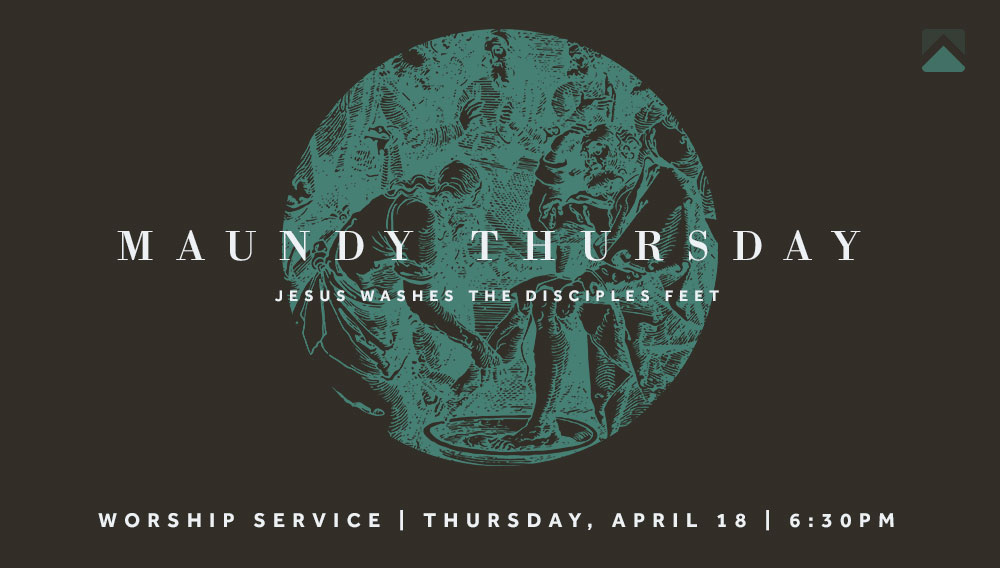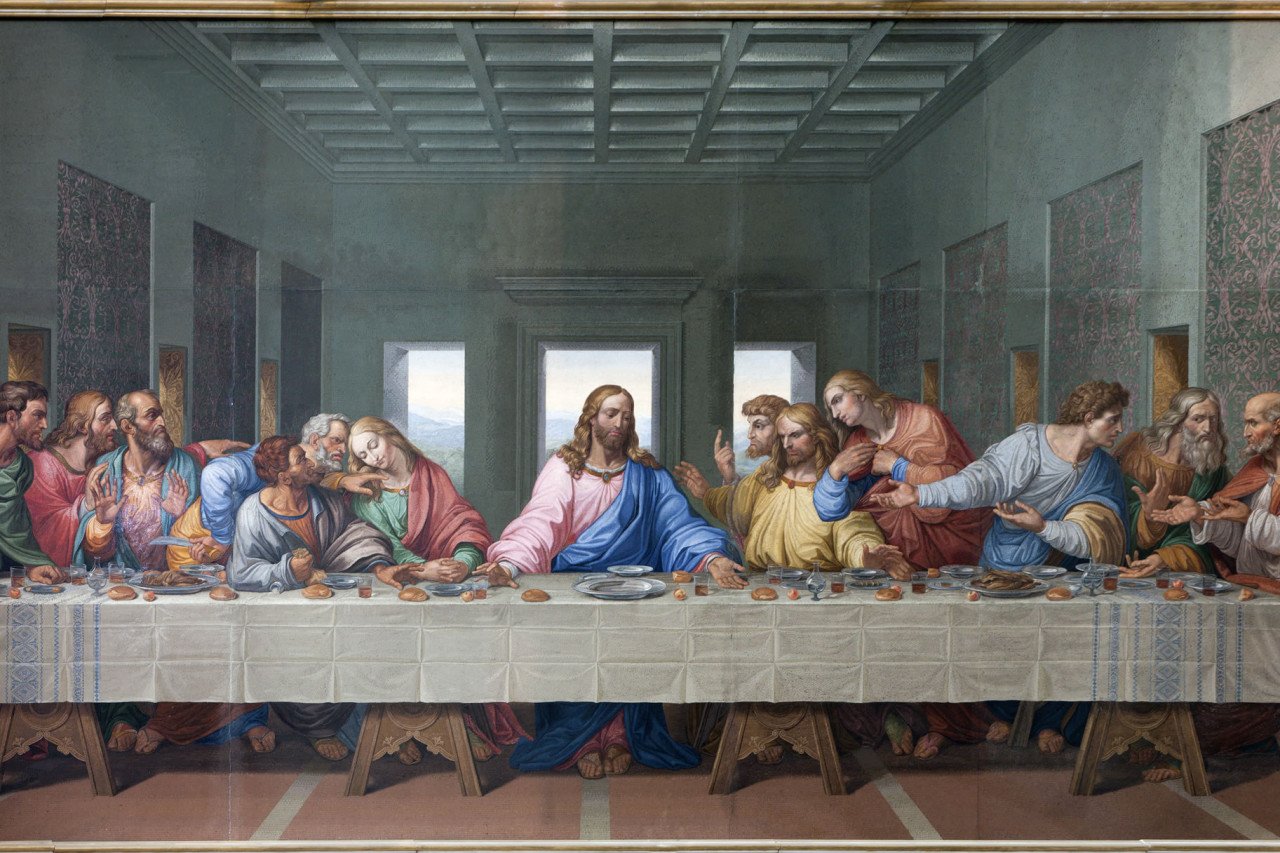Maundy Thursday is a day steeped in history, tradition, and profound spiritual meaning. It's the day when Christians around the globe commemorate the Last Supper of Jesus Christ with his disciples. This event isn't just a religious observance; it's a pivotal moment that connects faith, sacrifice, and service. As we explore what happened on Maundy Thursday, we'll uncover layers of symbolism, rituals, and teachings that continue to resonate in modern times.
You might wonder why this particular Thursday is so special. Well, it's not just another day on the calendar. Maundy Thursday kicks off the Easter Triduum, marking the beginning of the holiest days in Christianity. From the washing of feet to the institution of the Eucharist, this day is packed with powerful lessons that remind us of love, humility, and sacrifice.
But here's the kicker—Maundy Thursday isn't just about ancient events. It's a living tradition that invites us to reflect on how we treat others, how we serve those in need, and how we carry forward the teachings of Jesus in our daily lives. Let's dive deeper into the heart of this holy day and discover its relevance in today's world.
Read also:Dune Cast The Ultimate Guide To The Movies Starstudded Lineup
Understanding the Origins of Maundy Thursday
Let's rewind to the roots of Maundy Thursday. The term "Maundy" comes from the Latin word "mandatum," which means "commandment." This commandment refers to Jesus' instruction to his disciples during the Last Supper: "A new commandment I give to you, that you love one another: just as I have loved you, you also are to love one another." This simple yet profound teaching sets the tone for the day's significance.
Historically, Maundy Thursday commemorates two key events: the washing of the disciples' feet and the Last Supper. These acts symbolize humility and service, reminding us of the importance of putting others before ourselves. It's not just about remembering what happened but about living out these principles in our own lives.
Why Is Maundy Thursday Important in Christianity?
Maundy Thursday isn't just another event in the Christian calendar. It's a day that encapsulates the essence of Christianity—love, humility, and sacrifice. For believers, it's a time to reflect on Jesus' example of selflessness and the ultimate gift he gave through his crucifixion.
- It marks the beginning of Jesus' passion, leading to his crucifixion on Good Friday.
- It celebrates the institution of the Eucharist, a central sacrament in many Christian traditions.
- It emphasizes the importance of serving others, as demonstrated by Jesus washing his disciples' feet.
In short, Maundy Thursday is a day that challenges us to live out our faith in practical, meaningful ways.
The Last Supper: A Symbol of Love and Sacrifice
At the heart of Maundy Thursday lies the Last Supper, a meal shared by Jesus and his disciples. This wasn't just any dinner—it was a transformative moment where Jesus introduced the concept of the Eucharist. By breaking bread and sharing wine, he established a sacred ritual that continues to be celebrated in churches worldwide.
The Last Supper teaches us about love, unity, and remembrance. It's a reminder of Jesus' impending sacrifice and his desire to remain with his followers through the breaking of bread. This act of communion strengthens the bond between believers and reinforces the idea of shared faith and purpose.
Read also:All Or Nothing Movie 2006 A Deep Dive Into The Thrilling World Of Risk And Reward
What Does the Eucharist Represent?
The Eucharist, often referred to as Holy Communion, represents the body and blood of Christ. It's more than a symbolic gesture—it's a spiritual connection that reminds us of Jesus' love and sacrifice. Here are some key points to consider:
- The bread symbolizes Jesus' body, broken for us.
- The wine symbolizes his blood, shed for the forgiveness of sins.
- Partaking in the Eucharist is a way to remember Jesus' ultimate sacrifice and to renew our commitment to following his teachings.
This ritual is a powerful reminder of the love and grace that define Christianity.
The Washing of Feet: A Lesson in Humility
Another significant event on Maundy Thursday is the washing of feet. This act, performed by Jesus himself, demonstrates the importance of humility and service. In a world that often values power and status, Jesus' actions challenge us to embrace a different kind of leadership—one rooted in love and compassion.
By washing his disciples' feet, Jesus showed that no task is beneath us when we serve others with a humble heart. This lesson is as relevant today as it was 2,000 years ago. In a society where egos often run rampant, the washing of feet serves as a gentle reminder to put others first.
How Can We Practice Humility in Our Daily Lives?
Humility isn't just a religious concept—it's a universal virtue that can transform our relationships and communities. Here are some practical ways to incorporate humility into your daily routine:
- Listen actively to others without judgment.
- Offer help without expecting anything in return.
- Admit mistakes and seek forgiveness when needed.
These small acts of humility can have a profound impact on those around us, creating a ripple effect of kindness and compassion.
Maundy Thursday Around the World
While Maundy Thursday is celebrated globally, different cultures and traditions bring unique flavors to the observance. From solemn church services to vibrant processions, this day is marked in diverse ways depending on the region. Let's explore some of the fascinating traditions that make Maundy Thursday a truly global event.
In Spain, for example, the day is known as "Jueves Santo," and it's celebrated with elaborate processions featuring floats and religious statues. In the Philippines, families gather for a special meal called "Pabasa," where they read the Passion of Christ together. Meanwhile, in the United Kingdom, the Queen participates in a Royal Maundy service, distributing special coins to elderly citizens in recognition of their service to the community.
How Do Different Denominations Celebrate Maundy Thursday?
Christian denominations have their own ways of marking Maundy Thursday. Here's a glimpse into how some of them observe this sacred day:
- Catholic Church: Mass of the Lord's Supper, including the washing of feet.
- Protestant Churches: Foot-washing ceremonies and communion services.
- Eastern Orthodox Churches: Vespers service and the reading of the Twelve Gospels.
Despite these differences, the core message of love, humility, and service remains constant across all traditions.
The Significance of Maundy Thursday in Modern Times
In an era dominated by technology and fast-paced lifestyles, Maundy Thursday offers a much-needed pause for reflection. It invites us to step back from the noise and reconnect with the values that truly matter—love, humility, and service. These principles are more relevant today than ever, as we navigate a world filled with challenges and uncertainties.
For many, Maundy Thursday is a call to action. It's a reminder to reach out to those in need, to lend a helping hand, and to make a difference in our communities. Whether through volunteering, charitable acts, or simply offering a kind word, we can all contribute to creating a more compassionate world.
How Can We Apply Maundy Thursday's Teachings Today?
Living out the lessons of Maundy Thursday doesn't have to be complicated. Here are some simple yet impactful ways to incorporate these teachings into your life:
- Engage in acts of service, such as volunteering at a local shelter or food bank.
- Practice gratitude by reflecting on the blessings in your life.
- Reach out to someone in need, offering support and encouragement.
By embracing these practices, we can honor the spirit of Maundy Thursday and make a positive impact in our world.
Historical Context and Biblical References
To fully appreciate the significance of Maundy Thursday, it's essential to understand its historical and biblical context. This day is deeply rooted in the events described in the Gospels, particularly in the accounts of Matthew, Mark, Luke, and John. Each Gospel offers unique insights into the Last Supper and the washing of feet, providing a rich tapestry of meaning and interpretation.
For instance, John's Gospel places particular emphasis on the washing of feet, highlighting Jesus' example of servant leadership. Meanwhile, the other Gospels focus on the institution of the Eucharist, emphasizing the importance of remembrance and unity. Together, these accounts paint a comprehensive picture of Maundy Thursday's significance in the Christian tradition.
What Can We Learn from the Biblical Accounts?
The Gospels offer valuable lessons that resonate with believers and non-believers alike. Here are some key takeaways:
- Love one another as Jesus loved us.
- Serve others with humility and compassion.
- Remember and celebrate the sacrifices made for our well-being.
These teachings encourage us to live with purpose and intention, making a positive difference in the lives of those around us.
Maundy Thursday and Its Impact on Personal Faith
For many, Maundy Thursday is a day of deep reflection and spiritual renewal. It's an opportunity to reconnect with one's faith and to reaffirm commitments to living a Christ-like life. Whether through prayer, meditation, or acts of service, this day invites us to deepen our relationship with God and with others.
Personal experiences of Maundy Thursday can vary widely, depending on individual beliefs and practices. Some may choose to attend a church service, while others may spend the day in quiet contemplation. Regardless of the approach, the goal is the same—to grow in faith and understanding.
How Can Maundy Thursday Deepen Your Faith?
Here are some ways to make the most of Maundy Thursday and enrich your spiritual journey:
- Participate in a church service or community event.
- Engage in personal prayer or meditation.
- Perform acts of service in honor of Jesus' example.
By embracing these practices, you can experience the transformative power of Maundy Thursday and strengthen your faith in meaningful ways.
Conclusion: Embracing the Spirit of Maundy Thursday
As we've explored the events and teachings of Maundy Thursday, it's clear that this day holds immense significance for believers and non-believers alike. From the Last Supper to the washing of feet, each moment offers valuable lessons about love, humility, and service. These principles are as relevant today as they were 2,000 years ago, challenging us to live with purpose and compassion.
So, what can you do to honor the spirit of Maundy Thursday? Start by incorporating its teachings into your daily life. Whether through acts of service, moments of reflection, or expressions of gratitude, you can make a difference in your community and beyond. And remember, the impact of Maundy Thursday isn't limited to a single day—it's a way of life that can inspire and transform us all.
Now it's your turn. Share your thoughts and experiences in the comments below. How do you celebrate Maundy Thursday? What lessons have you learned from this holy day? Let's continue the conversation and inspire one another to live out the love and service that define this sacred observance.
Table of Contents
- Understanding the Origins of Maundy Thursday
- Why Is Maundy Thursday Important in Christianity?
- The Last Supper: A Symbol of Love and Sacrifice
- What Does the Eucharist Represent?
- The Washing of Feet: A Lesson in Humility
- How Can We Practice Humility in Our Daily Lives?
- Maundy Thursday Around the World
- How Do Different Denominations Celebrate Maundy Thursday?
- The Significance of Maundy Thursday in Modern Times
- How Can We Apply Maundy Thursday's Teachings Today?



